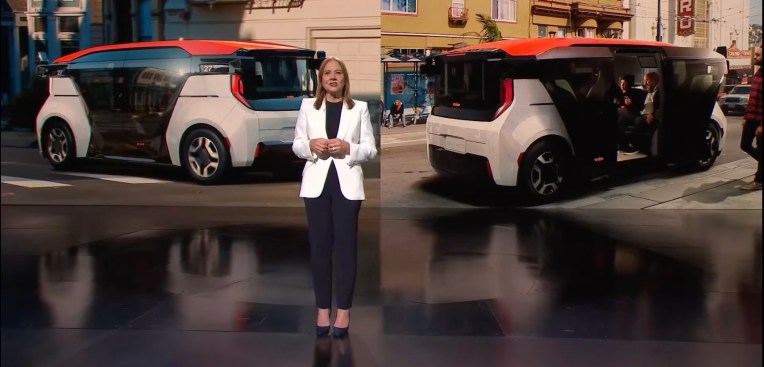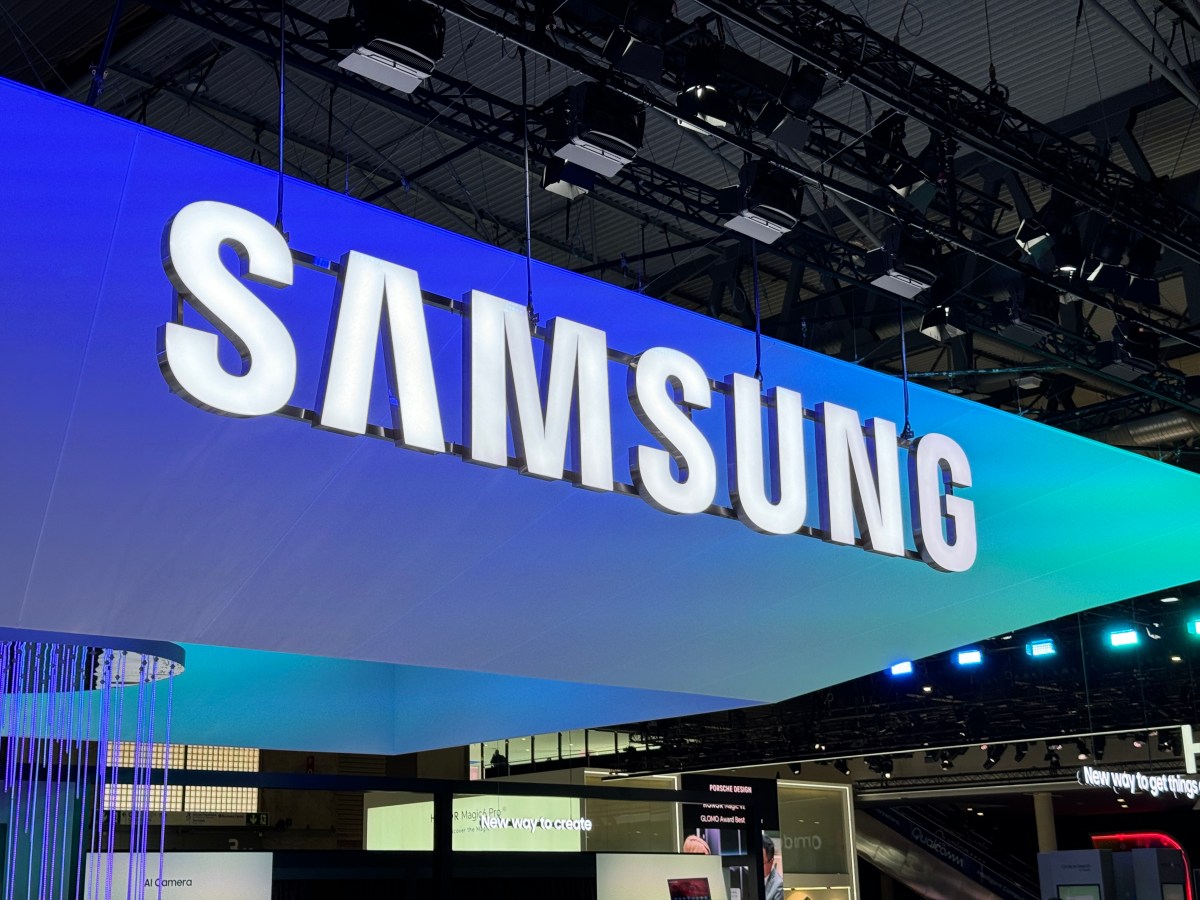The Station: GM deepens it stake in Cruise and Porsche plots out its EV course – TechCrunch
The Station is a weekly newsletter dedicated to all things transportation. Sign up here — just click The Station — to receive it every weekend in your inbox. (Folks, a technical snafu meant the weekly newsletter wasn’t emailed to subscribers this Sunday, so we’re posting this now. We regret the error.)
Hello readers: Welcome to The Station, your central hub for all past, present and future means of moving people and packages from Point A to Point B.
Before we dive in, I wanted to highlight one of our latest founder Q&A interviews, which we publish twice a month over at TC+. This time, Rebecca Bellan interviewed Dmitry Shevelenko, the former Uber executive who co-founded Tortoise in 2019. The pair cover a lot of ground, including Tier’s acquisition of Spin, the future of micromobility, how to own changing business directions, the difficulties in sidewalk robot delivery and the agility of startups.
As always, you can email me at [email protected] to share thoughts, criticisms, opinions or tips. You also can send a direct message to Kirsten at Twitter — @kirstenkorosec.
Micromobbin’

As Gogoro gears up to go public via SPAC with Poema Global this quarter, the company filed a prospectus with the SEC, from which we can glean some interesting little nuggets of information about the company. For example, the shareholder meeting to approve the merger is scheduled 9:30 am ET March 31, 2022.
Some other tidbits include:
- The company intends to list on the Nasdaq exchange under the proposed symbol “GGR“
- Gogoro’s balance sheet shows that in the first half of 2021, operating revenue was $145 million and gross profit was $18.4 million.
- After operating expenses, a good chunk of which were spent on sales and marketing, Gogoro’s net loss was $40 million.
- The company spends a LOT of money on batteries, which makes sense since battery swapping is Gogoro’s whole thing. In the six months ending on June 30, 2021, Gogoro spent $439 million on batteries, which includes battery-related expenses. That’s up from $335 million in the same period of the previous year.
Gogoro expects to make $630 million when it goes public, which includes an oversubscribed PIPE (private investment in public equity) of $285 million and $345 million held in trust by Poema Global. The company will use the funds to expand further into China, India and Southeast Asia.
The company’s prospectus details much of the Taiwanese company’s concerns regarding its dealings with China.
“Changes in the policies, regulations, rules, and the enforcement of laws of the PRC government may be quick with little advance notice and could have a significant impact upon Gogoro’s ability to operate profitably in the PRC,” reads the filing. “The business, financial condition and results of operations of Gogoro, and/or the value of Gogoro’s securities or its ability to offer…securities to investors may be materially and adversely affected to the extent the PRC government intervenes or influences Gogoro’s operations.”
The risk factors go on to detail how Gogoro’s operations may be subject to a variety of PRC law regarding cybersecurity and data protection, which might result in Gogoro spending additional resources and incur time delays to complete the business combination or be prevented from pursuing certain investment opportunities.
In other news …
Berlin-based e-bike subscription startup Dance is expanding to Hamburg, Munich, Vienna and Paris, giving customers an e-bike for €79/month. It’s also acquiring moped subscription startup Rollich.
Super73 released a ton of new e-bike models, including its first electric motorcycle, at SXSW. The motorcycle is just a concept vehicle, but the other models include an a-bike for kids. Get em’ while they’re young.
Audi of America partnered with Spoke, a mobility platform for safety, Qualcomm and Commsignia to bring the benefits of cellular vehicle-to-everything tech to enhance safety for motor vehicles and bicycles. With its partners, Audi is developing hardware and software for cars to help them read their surroundings to identify nearby bicycles.
— Rebecca Bellan
Deal of the week

Remember about six weeks ago when autonomous vehicle company Cruise unlocked a $1.35 billion investment from Softbank Vision Fund after launching a limited driverless robotaxi service to the public in San Francisco? Welp, General Motors now owns a helluva a lot more of the company.
GM said late Friday it is buying Softbank Vision Fund 1’s equity ownership in Cruise for $2.1 billion. GM said it’s also making an additional $1.35 billion investment in Cruise, replacing a previous commitment made by the fund in 2018.
GM acquired Cruise back in 2016. Within a couple of years, GM expanded the circle a bit, bringing in investment from Softbank as well as $2.75 billion from Honda as part of an exclusive agreement to develop and produce a new kind of autonomous vehicle. The pool of investors would grow again with T.Rowe Price & Associates and, more recently, Microsoft.
It’s unclear who prompted the buyback. Was Softbank unhappy with progress and looking to clawback some of its investment, or was this driven by GM? Or perhaps a combination.
It seems, from at least where I sit, GM is laying a foundation for a future spin out and even an IPO for its subsidiary.
Other deals that got my attention …
EO Charging, the British EV charging company, ended its merger agreement with First Reserve Sustainable Growth Corp.
Flash, the cloud parking software startup, nabbed a $250+ million strategic investment from Vista Equity Partners, money that it will use to expand its mobility operating system and payments platform and invest into new talent.
Getir, the instant delivery startup, closed a new $768 million Series E funding round led by Mubadala Investment Company with Abu Dhabi Growth Fund (ADG), Alpha Wave Global, Sequoia Capital and Tiger Global also participating. Following this deal, the company reached a valuation of $11.8 billion.
GoTo Group, the Indonesia tech firm that formed last year via a merger between ride-hailing giant Gojek and marketplace Tokopedia, plans to raise at least $1.1 billion from an initial public offering scheduled for April 4. The company said it aims to sell up to 52 billion new Series A shares at between 316 rupiah and 346 rupiah apiece, raising $28.8 billion at the top end of the range.
Moove, an African mobility fintech startup that provides vehicle financing to drivers of ride-hailing platforms like Uber and other gig networks, raised $105 million in new Series A2 round led by Speedinvest and Left Lane Capital. Existing investor thelatest.ventures also participated along side new backers such as AfricInvest, MUFG Innovation Partners, Latitude and Kreos Capital participated.
Shift, the used car e-commerce platform, acquired some of competitor Fair Technologies’ technology, allowing Shift to become the Amazon of the used car marketplace, a platform that displays third-party listings from dealers alongside the company’s own inventory.
TuSimple, the autonomous vehicle company that is backed by Chinese social media firm Sina Corp, is evaluating whether to sell its business in China and only operate in the U.S after reaching an agreement with the U.S. government to restrict its data due to U.S. security concerns.
Whale Dynamic, a Shenzhen-based autonomous delivery startup founded by Baidu veteran David Chang, says it has closed a seed round of about $2.5 million. Qianchuang Capital, a Beijing-based investment firm managed by veterans from China’s leading financial institutions, led the round, with participation from Shangbang Huizhong, a Chinese fund backed by real estate developers.
Zomato, the food delivery firm, and instant delivery service Blinkit have reached an agreement for a merger, a source familiar with the matter told TechCrunch. The all-stock deal values Blinkit between $700 million and $750 million, the source said, requesting anonymity as the matter is private.
Notable news and other tidbits
Autonomous vehicles
Argo AI has released Argoverse 2, the second version of its collection of open-source autonomous driving data and high-def maps from Austin, Detroit, Miami, Pittsburgh, Palo Alto and Washington D.C. The company is also sharing a lidar dataset to fuel research into new methods of ML using unlabeled point cloud data.
Aurora built a transferable hardware kit that will help it develop autonomous trucks and cars in parallel, as well as power those vehicles with its Aurora Driver.
Solo Advanced Vehicle Technologies wants to build electric, purpose-built heavy-duty truck platforms for autonomous freight.
Electric vehicles
Ford said it will launch three new electric passenger vehicles and four new electric commercial vehicles in Europe over the next two years, an acceleration of its plans to sell more EVs in the region on its way toward reaching carbon neutrality in the region by 2035. Side note: Ford’s Advanced Manufacturing Center has developed a patent-pending system that solves a bottleneck in the production line by using robots to operate the 3D printers through the night without human interaction.
Maserati plans to launch a battery-electric version for each model in its portfolio by 2025 and phase out gas engines by the end of the decade, making it the latest to join the long list of marques from Aston Martin to Volvo that have pledged to go electric.
Porsche provided an update on its strategy during its annual meeting, a plan that will now include producing an all-electric 718 followed by a Macan EV as well as building out its own proprietary global network of charging stations next year, a departure from its initial strategy to rely on partnerships with other companies.
Stellantis and LG Energy Solution will build their new EV battery plant in Ontario, Canada.
Tesla idled its Shanghai Gigafactory for two days amid a rise in China’s Omicron cases that has prompted the government to tighten restrictions there. The automaker sent a notice to employees and suppliers on Wednesday informing them of the closure, reported Reuters, which viewed the internal memo.
Volta, the EV charging company, is working with Tanger Factory Outlet Centers to install charging stations at Tanger locations in nine markets in the U.S., with expectations to grow in the coming months.
Gig economy
Lyft and Uber are adding temporary fuel surcharges to fares for ride-hail and deliveries as fuel prices around the country rise. The rising prices are due to Russia’s invasion of Ukraine, which has resulted in a mountain of economic sanctions from the west against Russia, including the U.S.’s ban last week of Russian oil imports and the U.K.’s promise to ease its dependency on Russian fuel by the end of the year.
Miscellaneous
The Biden administration awarded $409 million in grants to 70 projects in 39 states to modernize and electrify America’s buses and improve safety.
People
Ford Motor CEO Jim Farley’s total compensation skyrocketed 93% to $22.8 million in 2021, an increase largely due to stock awards, which more than tripled to about $16 million, according to the company’s annual proxy statement. Farley’s pay included a $1.7 million base salary, a 19% increase from 2020. His compensation also included $830,305 for personal use of aircraft.
Rivian has hired Frank Klein, a former executive at Magna International, as its chief operating officer.





